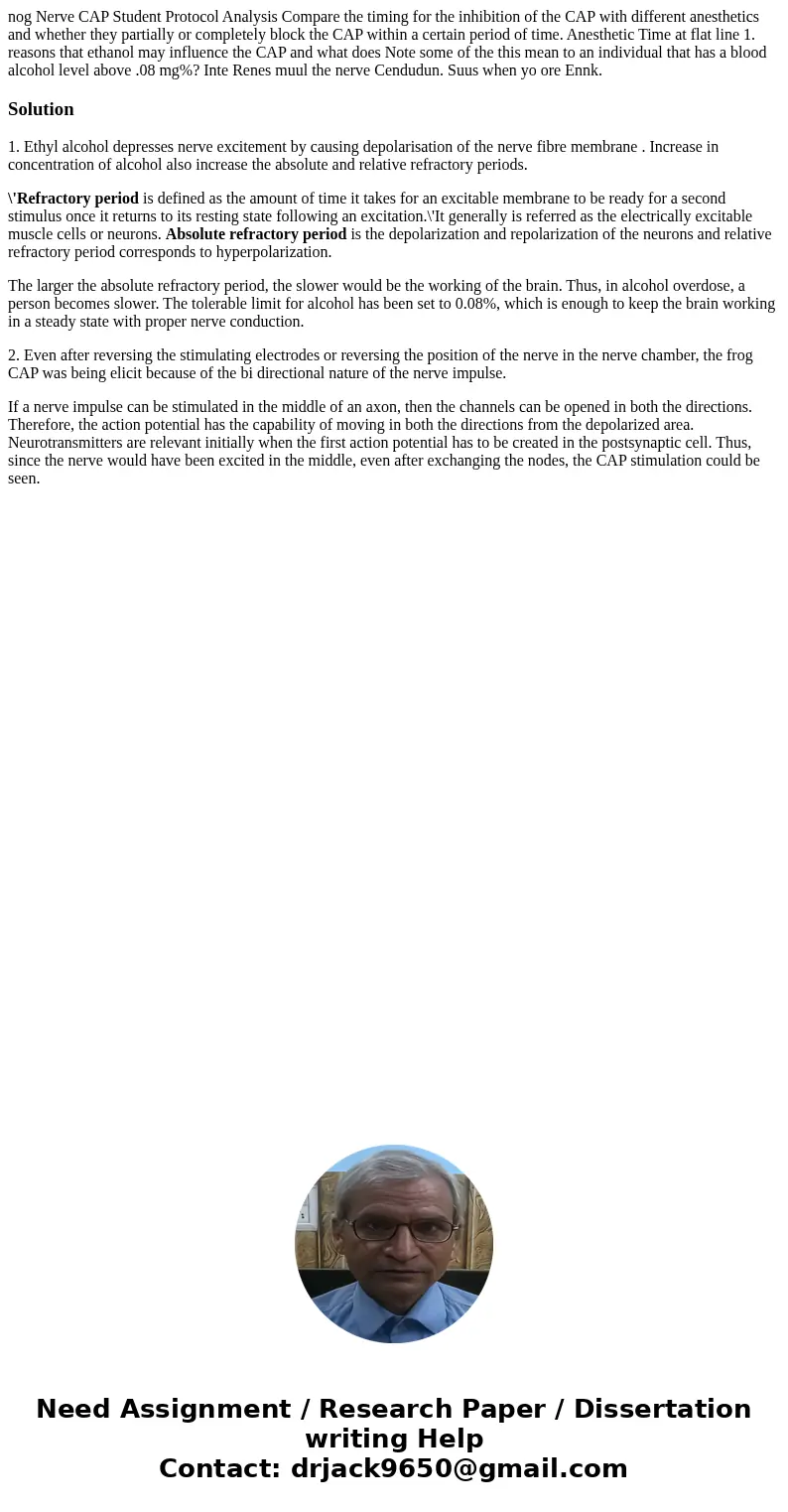nog Nerve CAP Student Protocol Analysis Compare the timing f
Solution
1. Ethyl alcohol depresses nerve excitement by causing depolarisation of the nerve fibre membrane . Increase in concentration of alcohol also increase the absolute and relative refractory periods.
\'Refractory period is defined as the amount of time it takes for an excitable membrane to be ready for a second stimulus once it returns to its resting state following an excitation.\'It generally is referred as the electrically excitable muscle cells or neurons. Absolute refractory period is the depolarization and repolarization of the neurons and relative refractory period corresponds to hyperpolarization.
The larger the absolute refractory period, the slower would be the working of the brain. Thus, in alcohol overdose, a person becomes slower. The tolerable limit for alcohol has been set to 0.08%, which is enough to keep the brain working in a steady state with proper nerve conduction.
2. Even after reversing the stimulating electrodes or reversing the position of the nerve in the nerve chamber, the frog CAP was being elicit because of the bi directional nature of the nerve impulse.
If a nerve impulse can be stimulated in the middle of an axon, then the channels can be opened in both the directions. Therefore, the action potential has the capability of moving in both the directions from the depolarized area. Neurotransmitters are relevant initially when the first action potential has to be created in the postsynaptic cell. Thus, since the nerve would have been excited in the middle, even after exchanging the nodes, the CAP stimulation could be seen.

 Homework Sourse
Homework Sourse